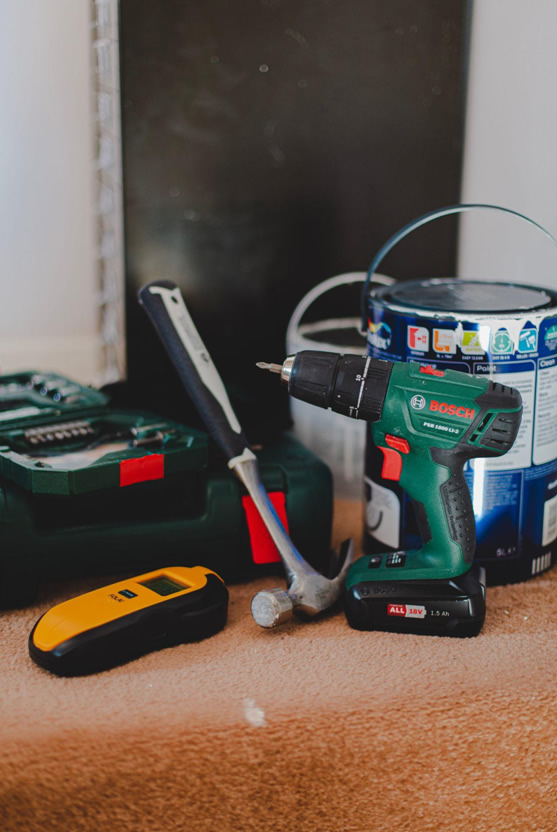Top DIY Tips for Your Next Project
Do it yourself has become a major trend in recent years, fuelled by online articles and videos explaining how to get started. You can get into DIY as a hobby or as a fun way to make your home look nicer, and there are so many interesting projects to get into. Whether it’s as simple as creating some new cushions or as complex as installing a new lighting system, there are lots of options for both new and experienced DIYers.

If you’re completely new to DIY, it can be difficult to know how to get started, even with all the information and how-to guides online. In this article, we’ll share some top DIY tips to help you prepare for your next project. Whatever the size and scale of the work you’re doing, these tips will help make sure it’s a success.
Research the Materials and Tools You Need
Before you start any new project, it’s vital to make sure you have all the correct tools and materials. You don’t want to be rushing out to the shops to buy things after the work has already begun. Plan everything out in advance, and don’t overlook small but important things like screws, which are great for holding materials in place.
When purchasing materials and tools, don’t cut corners by going with the cheapest option. While you shouldn’t have to break the bank, you want to have a quality result at the end of the project. For that, you need quality materials and tools.
If you need power tools, you may want to look into whether you can rent rather than buy them. They can be fairly expensive, and if you’re not going to be doing DIY projects regularly, it may work out more cost-effective. However, if you do decide to purchase one, make sure you buy from a quality supplier that offers a warranty on all products.
Take Safety Precautions
DIY is a lot of fun, but it can be dangerous if you don’t take proper precautions. Ensure you’re handling tools with care, and always consider potential risks before starting a project. If you’re doing cutting or dealing with sharp objects, you may want to purchase additional safety equipment, such as gloves or safety glasses.
Before you start a project, carry out a risk assessment to identify potential risks and hazards that might occur during the work. Write them down and think about ways you can reduce the risk, either by changing your behaviour or using a specific piece of equipment.
For some projects, the risks may be too great, especially if you’re a complete beginner. When dealing with live electricity, for example, it’s best to call in a professional. Don’t get swept up by the idea of doing everything yourself, sometimes the best way to reduce risk is to enlist the help of professionals.
Stay Focused
Sometimes, it’s easy to start something and get distracted along the way, especially if it turns out to be a much longer and more difficult project than you initially imagined. Whenever you’re doing any kind of DIY work, it’s important to stay focused and carry out the work until the end. This doesn’t mean not taking any breaks, but you should definitely avoid starting something new until you finish the work.
Some people like to start lots of different projects at once, but staying on track and keeping to one task at a time will help ensure you’re focused until the end. If you find you have trouble staying focused, write up a clear list of tasks before you start.
